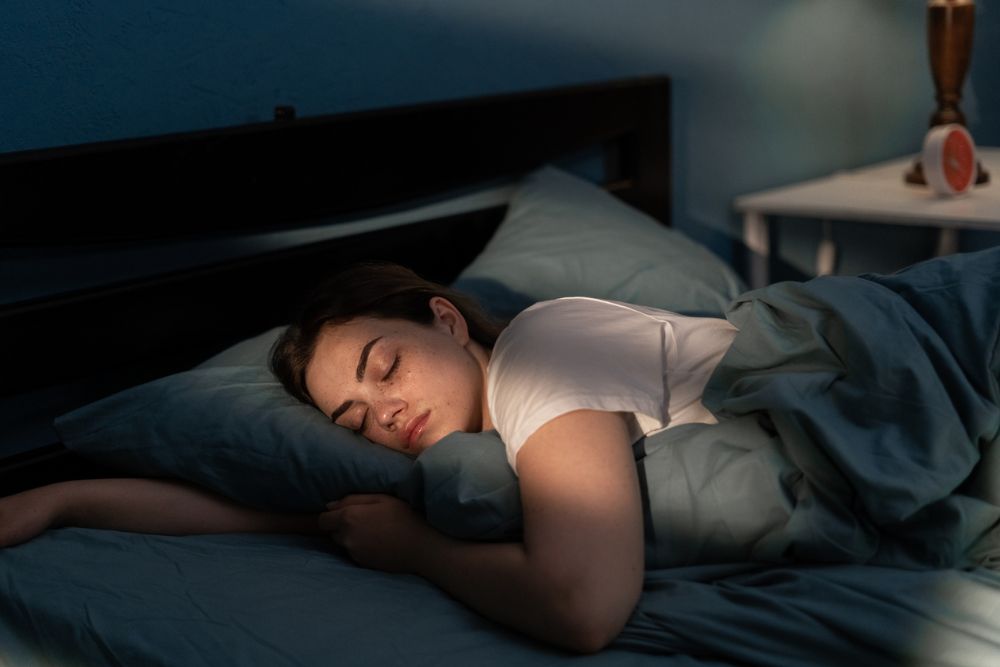The Importance of Sleep in Addiction Treatment: Tips for Better Sleep

Published: October 22, 2024
Sleep is a vital part of the recovery process for individuals undergoing addiction treatment. Getting quality rest supports physical and mental healing, allowing the body and mind to restore balance. Many in recovery, however, experience sleep disturbances due to withdrawal symptoms, anxiety, or lifestyle changes. Incorporating tips for better sleep can help address these issues and improve the chances of long-term recovery and overall well-being.
How Sleep Affects Addiction Recovery
Sleep is essential for cognitive function, emotional regulation, and physical health—all of which are crucial for individuals in addiction treatment. Chronic sleep deprivation can impair decision-making, increase irritability, and exacerbate cravings, making it harder to maintain sobriety. A regular sleep schedule helps regulate mood, reduce stress, and rebuild healthy brain function, which are key for recovery. Individuals who get better sleep may be more likely to stick to their treatment plan and feel more motivated and energized.
Tips for Better Sleep in Addiction Recovery
Incorporating the following tips for better sleep into your routine is a crucial part of the recovery process. Healthy sleep habits can significantly improve the quality of rest and boost the effectiveness of addiction treatment. Below are some practical tips for better sleep to help you on your journey to recovery:
Create a Relaxing Bedtime Routine
Having a calming bedtime routine signals your body and mind that it’s time to wind down. It can be as simple as reading a book, taking a warm bath, or practicing mindfulness and relaxation techniques like meditation or deep breathing. Avoiding electronics such as phones, tablets, and TVs before bed is also helpful, as the blue light emitted from these devices can disrupt sleep patterns. When battling addiction, it’s important to prioritize self-care and relaxation.
Maintain a Consistent Sleep Schedule
Establishing and adhering to a consistent sleep schedule is a vital step in supporting addiction recovery. By going to bed and waking up at the same time every day, individuals can reinforce the body’s natural circadian rhythm, leading to improved sleep quality. Consistency in sleep patterns helps stabilize mood and energy levels, both of which are often disrupted during addiction recovery.
This routine can reduce stress and provide a sense of normalcy, making it easier to resist cravings and adhere to treatment plans. Over time, a stable sleep schedule contributes to a more resilient recovery journey, helping individuals cultivate healthier, sobriety-supporting habits.
Manage Stress and Anxiety
Many individuals in addiction treatment may experience stress and anxiety, making it difficult to fall or stay asleep. While practicing relaxation techniques, such as deep breathing or meditation, can help reduce symptoms of anxiety and improve sleep quality, it’s essential to address the underlying causes of stress and anxiety as well. This could involve talking to a therapist, attending support groups, or finding healthy outlets for coping with emotions.
Use Natural Sleep Aids and Relaxation Techniques
For some individuals, incorporating natural sleep aids and relaxation techniques can also be helpful when struggling with sleep disturbances. These may include herbal teas, essential oils, or soothing music. To ensure safety and effectiveness, consulting a healthcare professional before using any natural remedies is recommended. Additionally, relaxation techniques such as progressive muscle relaxation or visualization can help calm the mind and promote better sleep.
Incorporate Physical Activity Into Your Day
Regular physical activity not only supports overall health but can also improve sleep quality. Exercise releases endorphins, which can reduce stress and improve mood, making it easier to fall asleep at night. Regular exercise can also help regulate the body’s natural rhythms, leading to a more consistent sleep schedule. When it comes to addiction recovery, incorporating healthy self-care practices like exercise can be beneficial for both physical and mental well-being.
Struggling With Sleep During Recovery? We’re Here to Help
If you or a loved one is struggling with addiction and experiencing sleep disturbances, you’re not alone. While the tips for better sleep discussed above can be helpful, it’s important to seek professional support and guidance in your recovery journey. At Rockland Treatment Center, we offer comprehensive addiction treatment programs. Contact us today to learn more about our services and how we can support you on your journey to a healthier, sober life.
